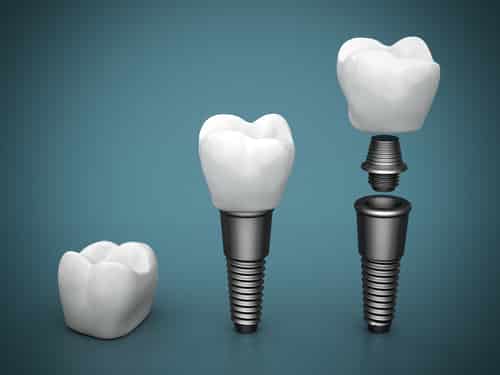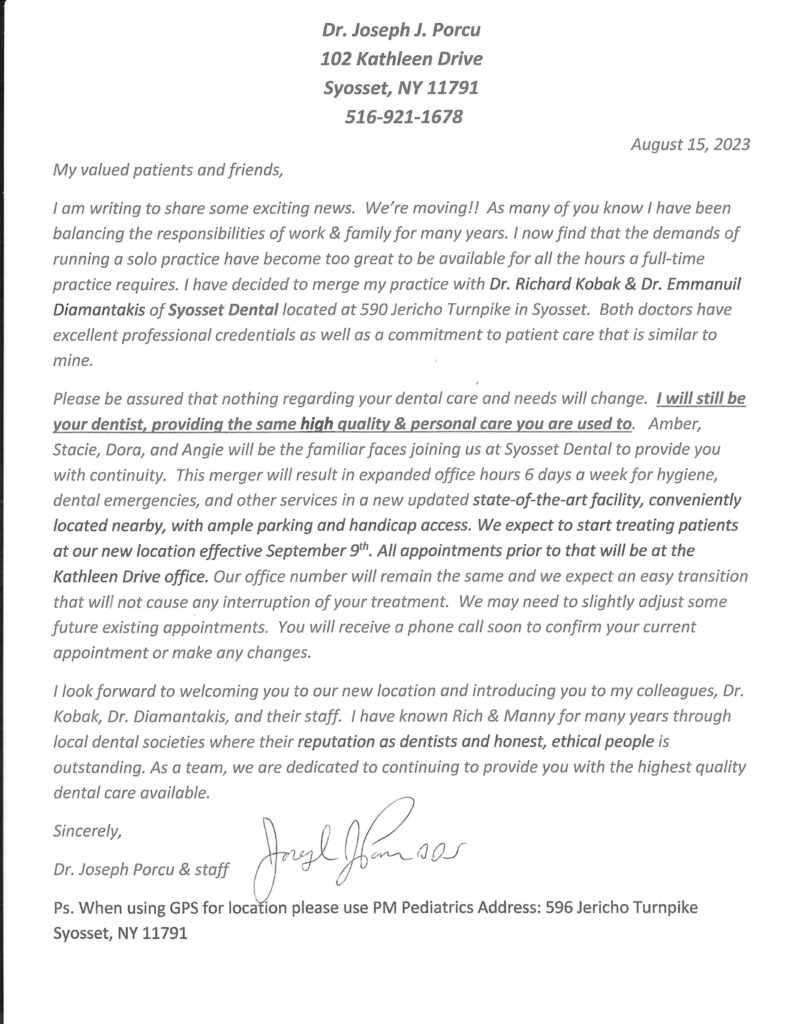 Dental implants have become increasingly popular for restoring lost teeth – especially over the last few decades. A major concern when you lose an ‘adult’ tooth is that it’s root is not able to stimulate your jawbone anymore because without this stimulation, your bone structure will deteriorate over time. A huge advantage that dental implants have is their ability to physically fuse together with your jawbone because they’re made of titanium – a biocompatible material. For qualified candidates, this isn’t its only advantage, either – the metal itself is extremely durable and able to resist damage from bacteria. Even still, dental implants require you to properly brush and floss as poor oral health can compromise the longevity of your new tooth.
Dental implants have become increasingly popular for restoring lost teeth – especially over the last few decades. A major concern when you lose an ‘adult’ tooth is that it’s root is not able to stimulate your jawbone anymore because without this stimulation, your bone structure will deteriorate over time. A huge advantage that dental implants have is their ability to physically fuse together with your jawbone because they’re made of titanium – a biocompatible material. For qualified candidates, this isn’t its only advantage, either – the metal itself is extremely durable and able to resist damage from bacteria. Even still, dental implants require you to properly brush and floss as poor oral health can compromise the longevity of your new tooth.
Understanding Dental Implants
There are three parts to these replacement “teeth”; the implant itself (the titanium portion that is inserted into the gum tissue), the abutment (the attachment that holds the dental crown in place), and the crown (the “tooth” portion that closely resembles a natural tooth). After the implant is placed, the titanium will go through a 3 to 6 month period (known as osseointegration) where it connects directly with your jawbone.
How Long Do Dental Implants Last?
The lifetime of your new tooth will heavily depend on your oral health. Assuming you’re practicing excellent oral hygiene and maintaining optimal health, the implant itself can last a lifetime! On the other hand, the dental crown portion may last up to 10 to 15 years before they need to be replaced.
Placement can impact their longevity, as well. For example, a prosthetic tooth in the back of your mouth may wear faster than an implant near the front of your smile due to the additional strain from chewing.
If you’re considering dental implants to replace a tooth that you’ve lost, don’t hesitate to consult with your dentist. Ultimately, they’ll determine if these prosthetic teeth will be the right fit for you!











